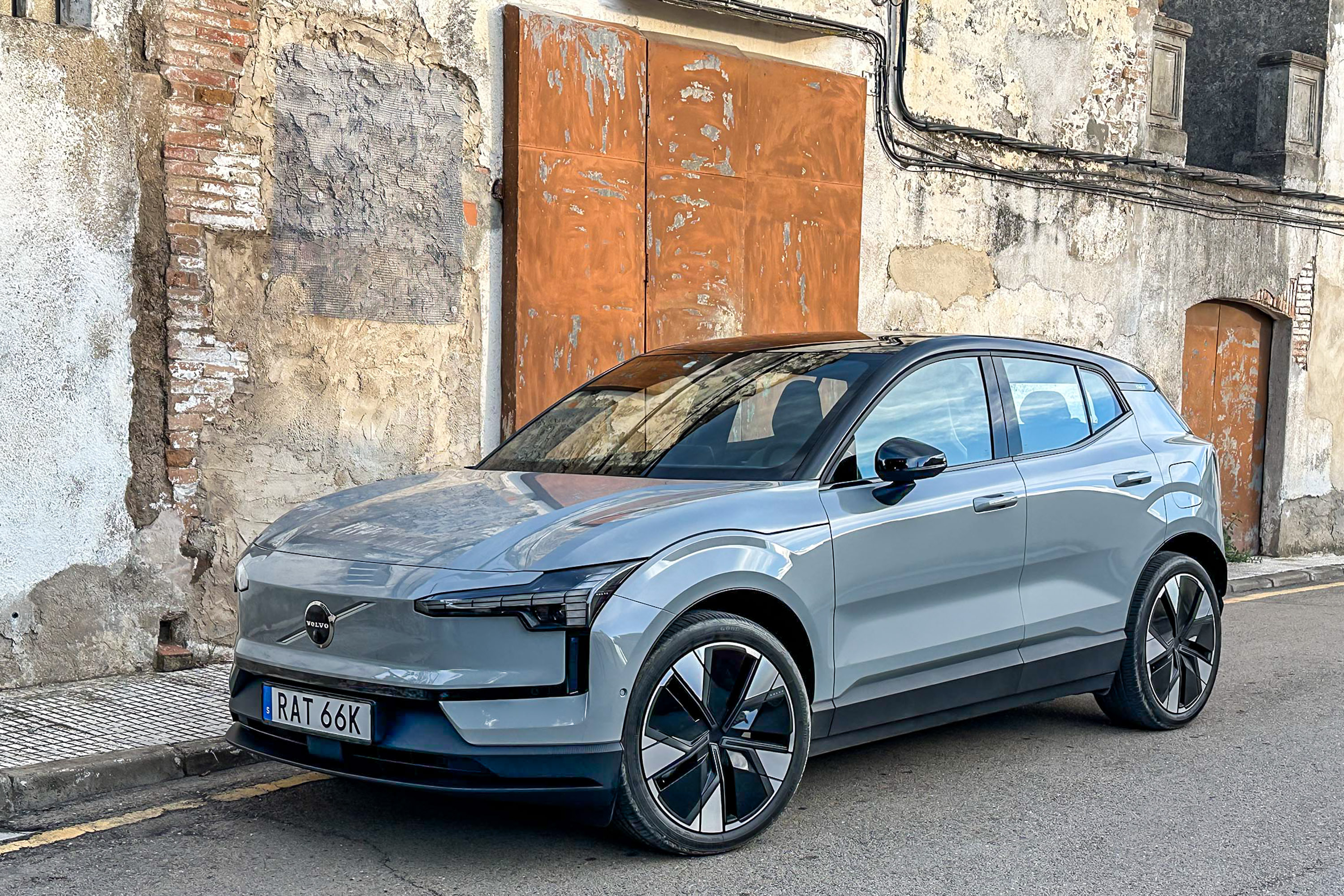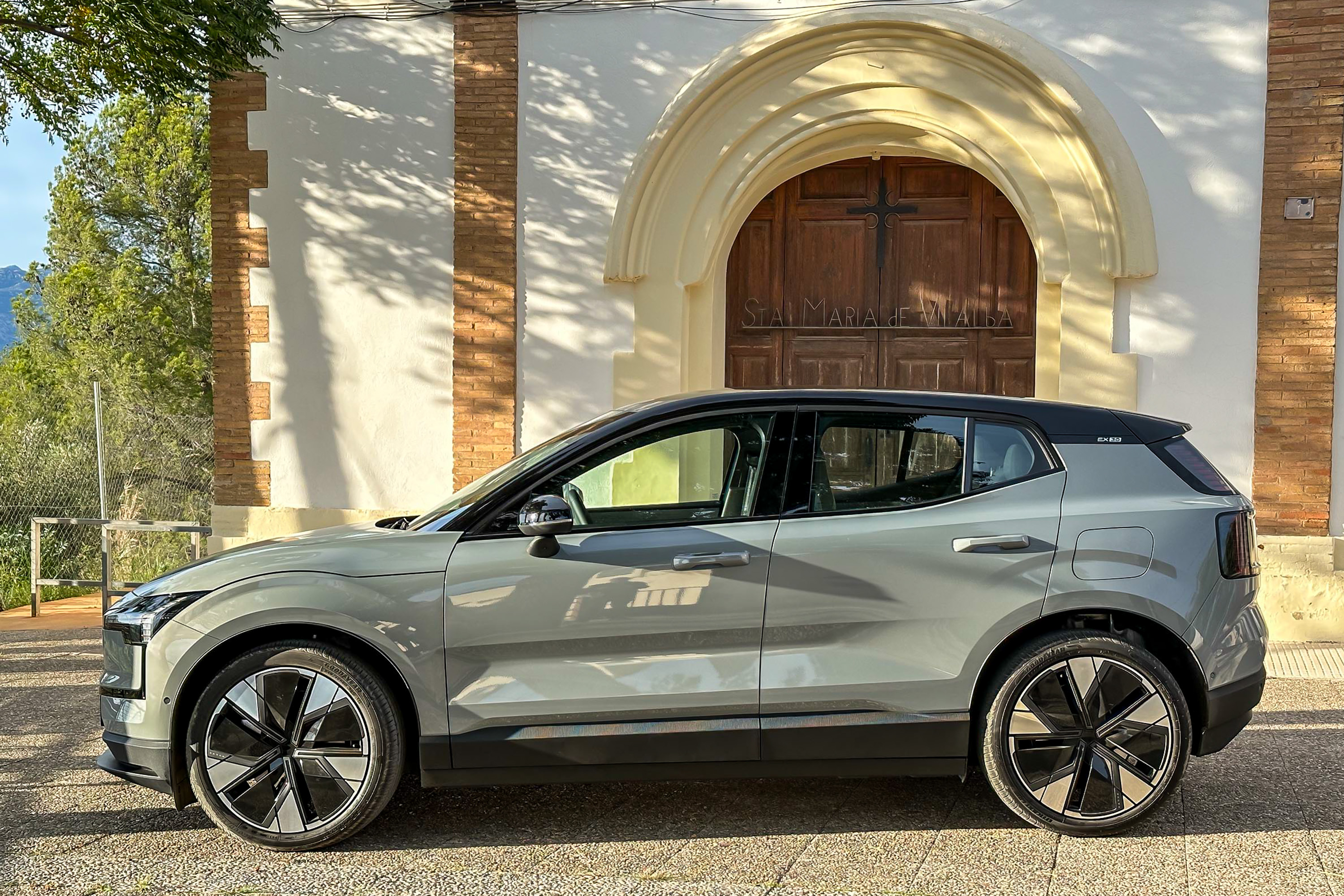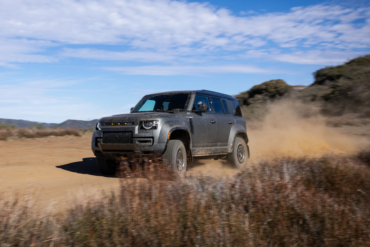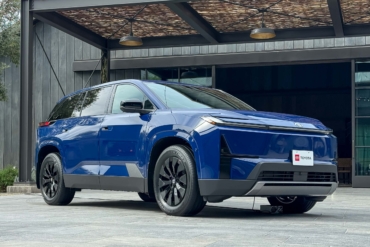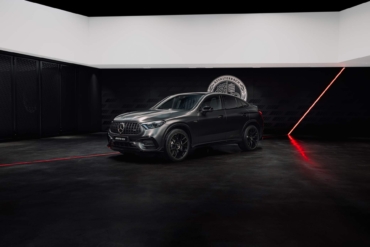Volvo’s push toward an all-electric future gets charged up with the debut of the new EX30. The new model is not only the smallest SUV in its lineup, but it’s also the fastest product it’s ever introduced. It marks the start of a wave of battery-powered models set to come over the next few years and will be followed in 2024 by the Swedish brand’s new flagship, the EX90.
Two versions of the Volvo EX30 will come to the U.S., including a twin-motor package making 422 horsepower that can sprint to 60 mph in just 3.4 seconds. A single-motor version, meanwhile, still makes a reasonably quick vehicle, with 268 horsepower, while delivering up to 275 miles range.
Perhaps most appealing, a reasonably well-equipped rear-wheel-drive version, the 2024 Volvo EX30 Core, starts at $34,950. At the upper extreme, the all-wheel-drive EX30 Ultra goes for $46,600. Add $1,195 in delivery fees.
To get a feel for the new EX30, I headed over to Barcelona, Spain, for a few days driving through the scenic city and surrounding Catalan countryside.
In short: Until recently, Volvo products were designed for a variety of different powertrains, including gas and plug-in hybrid. The 2024 EX30 is the first developed on a new, EV-only platform that delivers plenty of muscle, distinctive designs, and unexpectedly roomy interiors. Better yet, the base EX30 Core becomes one of the more affordable EVs on the U.S. market.
- Drivetrain: 1 or 2 electric motors, 69kWh lithium-ion battery
- HP/Torque: 422 horsepower and 253 lb.-ft. (twin-motor AWD), 268 horsepower and 400 lb.-ft. (single-motor RWD)
- Transmission: Single-speed gearboxes for each motor
- Length: 166.7"
- Cargo space: Up to 31.9 cu.-ft.
- Curb weight: 4,140 lbs. (twin-motor AWD), 3,858 lbs. (single-motor RWD)
- 0-60 mph: 3.4 sec. (twin-motor AWD), 5.1 sec. (single-motor RWD)
- Range: 265 mi. (twin-motor AWD), 275 mi. (single-motor RWD)
- MSRP: Starting at $34,950
Pros
- Class-larger interior space
- Delivers quick acceleration
- Quick charging
- Attractive design
Cons
- Would prefer a traditional gauge cluster or HUD
- Outside mirrors difficult to position
- Even in “Firm” setting, steering is quite light
- Quirky keycard replaces conventional keyfob
2024 Volvo EX30 Review
Volvo is no newcomer to the EV market, already offering two Recharge models in the U.S. But these are compromise designs, as they’re also offered with other powertrain options. With a goal of going all-electric by 2030, the Swedish automaker is getting ready to roll out its first EV-only models, the flagship EX90 and the entry-luxury EX30.
As with most new battery-electric vehicles, the smaller model’s SEA “architecture” is a skateboard-like design that moves the battery pack and motors below the load floor. That let Volvo’s product development team repurpose some of the space normally devoted to an engine compartment for an unexpectedly roomy interior. At just 166.7 inches, nose to tail, it has nearly the passenger and cargo space of the Volvo XC40 Recharge which measures 8 inches longer.
Sporty Design With Familiar Cues
Long gone are the days when Volvo was best known for its boxy wagons. Today, SUVs dominate the lineup, and that will be no exception in the emerging EX family of battery-electric vehicles.
The EX30 should look familiar to Volvo fans, with a number of familiar features, starting with its “iron mark” logo and Thor’s hammer headlamp. Depending upon the model, aerodynamic 19- and 20-inch wheels will be available in the States.
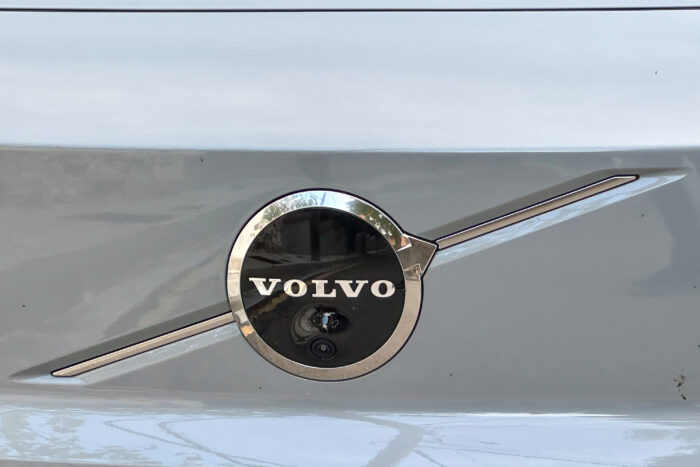
The overall shape, including the coupe-like roof, steeply raked windshield, and back light, reflects extensive work in the wind tunnel. Aerodynamics plays a critical role in the performance and range of an electric vehicle. The grille is sealed, as there’s no need to push air into the engine compartment. Instead, small, low-mounted intakes help cool the battery pack under the load floor.
While EX30 is, overall, about 8 inches shorter than the current XC40 line, its wheelbase measures a mere 2 inches less, the crossover’s wheels pushed well out toward the corners. Add a flat load floor and you get an interior that’s just as roomy as the XC40, with great head, leg, and shoulder room and up to 31.9 cubic feet of cargo space.
Swedish Minimalism
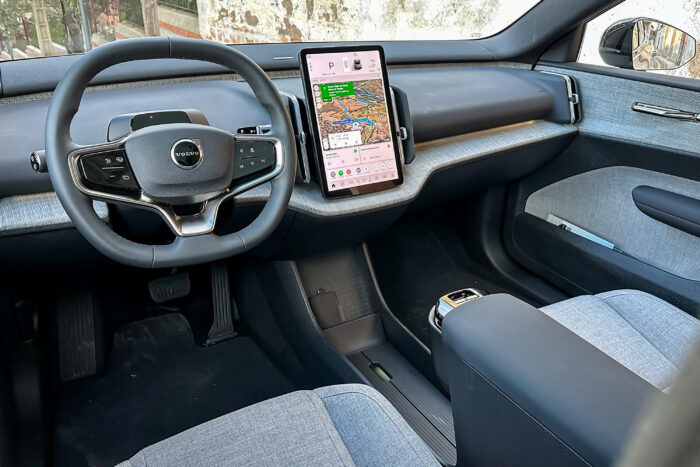
Like the entire Volvo lineup, the 2024 Volvo EX30 adopts a very Swedish interior design. You might call it “minimalist,” but it’s anything but poverty-spec. There are nice touches, such as the vertical slit air vents and pop-out cupholders. At the base of the center stack, there’s space for smartphones to use the EV’s wireless charger.
Volvo has become one of the most environmentally focused of automakers, and that’s apparent here. A number of interior components use recycled materials — a portion of the instrument panel made of old vehicle window frames that are normally sent off to landfills.
There are some design features likely to prove controversial with customers, however — notably the decision to eliminate a conventional gauge cluster. Data, such as vehicle speed and the battery pack’s state-of-charge, are displayed at the top of the 12.3-inch, vertically oriented touchscreen that tops EX30’s center stack. Unlike some other vehicles that have gone with a unified display — such as the new Vinfast VF 8 — there is no head-up display available.
Range, Power, and Performance
The 2024 Volvo EX30 will be offered with three different trim levels: Core, Plus, and Ultra, as well as with a choice of rear- or all-wheel-drive.
The single-motor model produces a peak 268 horsepower and 253 pound-feet of torque, enough to launch from 0 to 60 in 5.1 seconds. While not the best-in-class, it delivers an EPA-rated 275 miles per charge under optimum conditions. A surprising level of efficiency from a modest 69kWh lithium-ion battery pack.
With the twin-motor option, you’ll sacrifice 10 miles of range, at an estimated 265 miles per charge. With the Twin Motor Performance Package the EX30 delivers a punchy 422 horsepower and 400 pound-feet of torque, with launch times cut to 3.4 seconds.
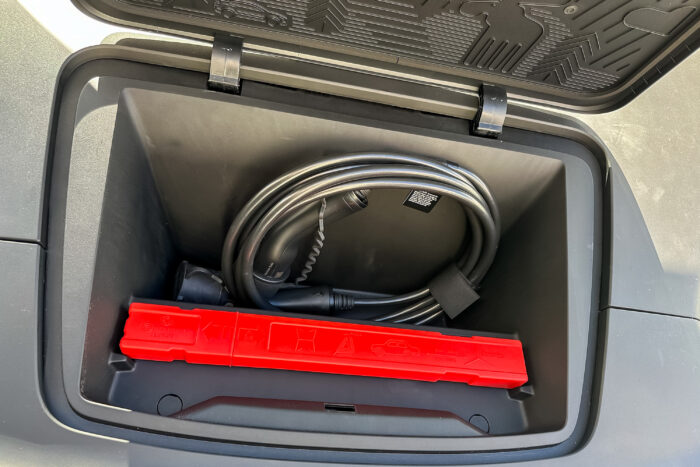
EX30 BEV Charging
Volvo plans to offer several different battery packs, depending on the market. American motorists will have just the 69kWh pack. Of that, there are 64 kWh of usable energy storage. With the larger pack, the Volvo EX30 can go from a 10% to 80% state-of-charge in as little as 26.5 minutes when connected to a DC quick charger, the automaker claims. That’s if you’ve got access to a charger delivering at least 153 kW, which has become increasingly common.
Volvo has yet to reveal charging times using a home 240V system but, considering the size of the pack, that should come in at or near 8 hours based on similar EVs.
Volvo EX30 Safety & Technology
While Volvo has put more emphasis on design and sporty driving manners in recent years, don’t think it’s abandoned its traditional focus on safety. The EX30 offers a wealth of traditional features, including numerous front, side, and rollover airbags. The design of the EV30’s SEA platform also uses the battery pack to help enhance crash performance.
Volvo also put a premium on advanced driver assistance systems, or ADAS technology. That includes forward collision warning with automatic emergency braking. A new system helps prevent “dooring” accidents by alerting occupants not to open their doors if there’s an oncoming vehicle or bicycle.
You’ll also find Volvo’s latest semi-autonomous driver assistance system. It still requires a motorist to maintain at least a grip on the steering wheel. You can go hands-free, however, with the new Park Pilot Assist, which helps you find a suitable spot and then parks the EX30 entirely on its own.
Expect these and other onboard technologies to be updated in the future using a smartphone-style over-the-air update system.
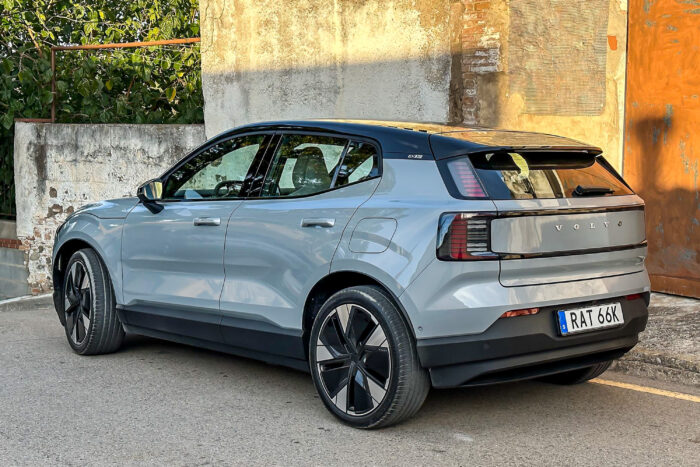
Volvo EV Tech Confusion
Speaking of smartphones, there’s space for two phones to charge at the bottom of the center console. But there’s an asterisk to that. The left slot also serves as the digital equivalent of an old-fashioned ignition slot. There’s actually no ignition button, but you need to have the EX30’s key card in the slot to start up. Then you can put it back in your pocket. Yes, it can confuse you the first few times you’re in the car.
My biggest complaint is similar to what bothers me about so many other new EVs — and some non-electric models. You have to go to the touchscreen to operate so many things, including the outside mirrors. Pick left or right and you then need to actually adjust the mirrors with one of the touchpads on the steering wheel. The process was jerky and a bit annoying. Volvo officials did say they were aware of the problem and promised to smooth things out by the time the EV reaches U.S. showrooms next year.
The infotainment technology itself has migrated away from Volvo’s old, clunky, operating system. The Google onboard technology is, on the whole, a big improvement.
Volvo EX30 Driving Impressions
It took a few minutes to get the feel of the 2024 Volvo EX30, set up the mirrors, and get it started up. After that, it felt much like driving any other Volvo as I navigated my way out of my hotel’s parking lot in the center of Barcelona.
On city streets, the compact footprint of the EX30 blended in well with Barcelona traffic, though the roomy cabin belied any sense of claustrophobia. The ride was solid but by no means jarring. The steering, however, was on the softer side, even after switching to the “Firm” setting on the touchscreen.
The EV’s one-pedal mode proved less aggressive than some models in its class, but still proved quite useful in city driving, allowing me to modulate the throttle without constantly jumping back and forth to the brake.
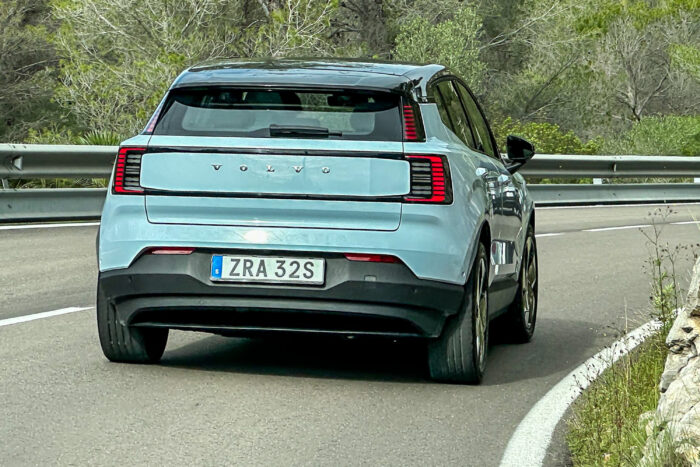
The Fastest Volvo Ever
At the debut of the EX30 earlier this year, Volvo billed this as “officially our fastest performing car ever.” I expected solid performance from the twin-motor version of the Volvo EX30 with the Performance Package. You get that aggressive, off-the-line acceleration unique to battery-electric vehicles thanks to the instant torque.
While the rear-drive version isn’t nearly as quick, it still delivers a substantial launch feel, enhanced by the fact that it weighs in at 3,858-pound, 282 pounds lighter than the all-wheel-drive model.
2024 Volvo EX30 Pricing & Availability
U.S. motorists will only see the two drivetrain options come to the States, both with 69kWh battery packs. Volvo is getting ready to start taking advance reservations for the 2024 EX30, but won’t start delivering them until near mid-year.
Three versions of the single-motor package will be available, the Core starting at $34,950, the Plus at $38,900, and the Ultra at $40,600. With the twin-motor EX30 you’ll have a choice of a Plus package, at $44,900, or the Ultra, at $46,600. Add $1,195 for delivery.
Only a handful of options, including a winter package, will be offered. The EX30 doesn’t qualify for federal sales incentives under the Inflation Reduction Act. But you can get up to $7,500 in federal tax credits if you lease the vehicle.
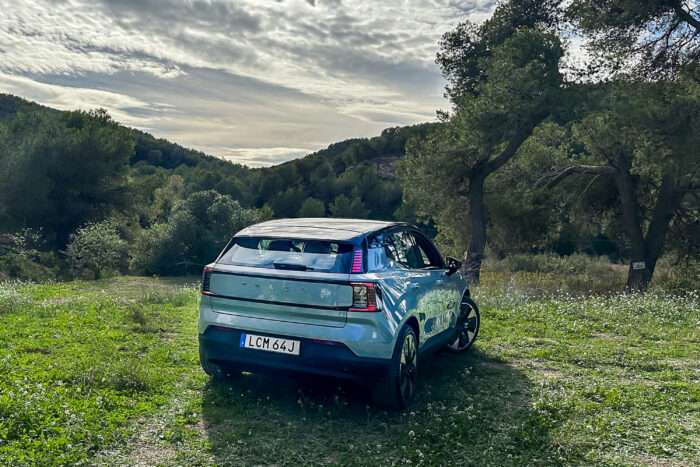
2024 EX30: Last Words
Initially, all versions of the 2024 Volvo EX30 will be imported from China. Early demand has been so strong, however, that Volvo plans to add production at its plant in Ghent, Belgium, in 2025. Most, and possibly all, U.S. versions will be sourced from that factory.
The automaker has indicated plans to add another, the more rugged EX30 Cross Country, starting late next year. It will get more ground clearance, 18-inch wheels and all-terrain tires, skid plates, and other useful features for those looking to do mild to moderate off-roading.
Based on my initial experience, the 2024 Volvo EX30 should do quite well right out of the chute. It proves that good things really can come in small packages. It’s attractive, roomy, and simply fun to drive. And, I expect Volvo will address some of my minor complaints before the new EV reaches U.S. showrooms.
